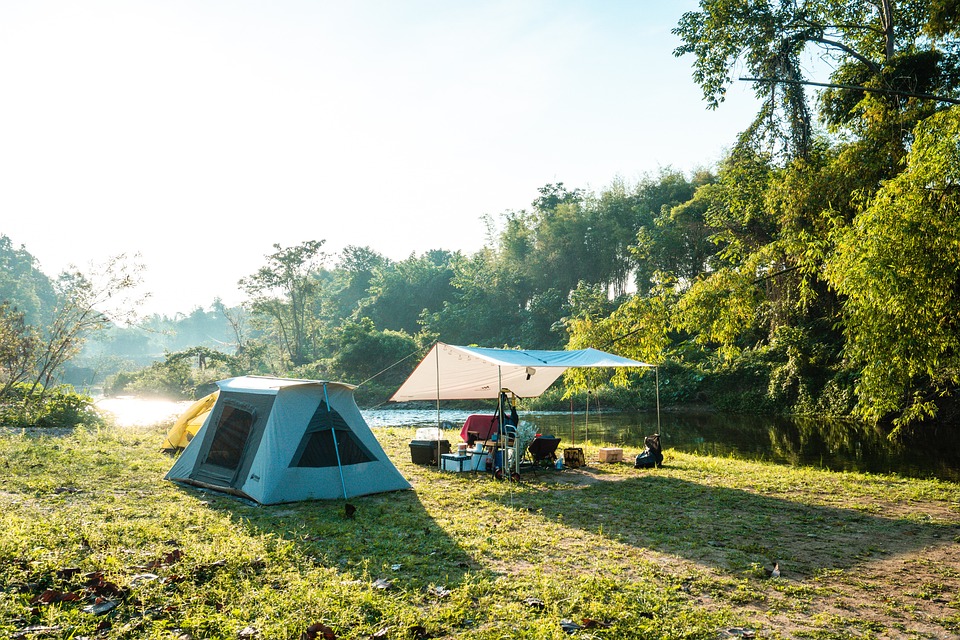Table of Contents
Introduction
Winter camping may seem daunting to some, but for adventurers seeking unique experiences and breathtaking landscapes, embracing the cold can lead to unforgettable adventures. From snow-covered forests to frozen lakes, winter offers a whole new world waiting to be explored. In this article, we will delve into the beauty and excitement of winter camping, providing tips and insights for a successful and enjoyable trip.
Benefits of Winter Camping
1. Solitude and Tranquility
One of the greatest advantages of winter camping is the opportunity to escape from the crowds and find solitude in nature. As the icy temperatures deter most campers, you can enjoy the tranquility of frozen landscapes undisturbed. The stillness of winter can be therapeutic, allowing you to connect with the environment like never before.
2. Stunning Winter Landscapes
Winter transforms the natural world into a dazzling wonderland. Snow-covered landscapes, frost-coated trees, and frozen waterfalls create breathtaking scenes that go beyond one’s imagination. Witnessing the sun rise over a pristine, snow-covered landscape is an experience that will forever remain etched in your memory.
3. Unique Outdoor Activities
Aside from traditional camping activities such as hiking and fishing, winter camping offers a range of unique adventures. From snowshoeing and cross-country skiing to ice climbing and snowboarding, the possibilities are endless. These activities provide a perfect balance of adrenaline and tranquility, allowing you to explore new horizons.
Essential Winter Camping Gear
1. Winter-Grade Tent
A winter-grade tent is essential for camping in colder temperatures. It must be able to withstand strong winds, heavy snowfall, and provide adequate insulation. Look for a tent with a sturdier frame, reinforced seams, and a waterproof and windproof flysheet.
2. Four-Season Sleeping Bag
Your summer sleeping bag won’t suffice when camping in winter. Invest in a four-season sleeping bag designed to keep you warm in sub-zero temperatures. Look for a bag with an appropriate temperature rating, good insulation, and a hood to retain heat. Additionally, consider using a sleeping pad or an insulating mattress to prevent cold seeping from the ground.
3. Layered Clothing
Dressing in layers is key to staying warm during winter camping. Start with a moisture-wicking base layer, followed by insulating layers such as a fleece or down jacket, and finish with a waterproof and windproof outer layer. Don’t forget to layer your socks and wear proper winter boots to keep your feet warm and dry.
4. Essential Survival Gear
Winter conditions can be unpredictable, so it’s crucial to carry essential survival gear. Items such as a map and compass, headlamp, fire-starting tools, extra food, and a first-aid kit are essential. Additionally, consider carrying an emergency bivvy or a space blanket for added protection.
Tips for Winter Camping
1. Choose the Right Campsite
Prioritize choosing a campsite that offers shelter from wind and potential avalanches. Look for areas protected by trees or natural barriers that can provide some level of insulation. Additionally, ensure access to a water source if necessary.
2. Check Weather and Avalanche Conditions
Before embarking on your winter camping adventure, thoroughly check current weather conditions and avalanche forecasts. Make informed decisions based on these reports to ensure your safety during the trip.
3. Keep Hydrated and Well-Nourished
Staying hydrated and well-nourished is crucial to maintaining energy and warmth during winter camping. Ensure you bring enough water and high-energy, easy-to-prepare food. Consider bringing a portable stove and a thermos for hot drinks.
4. Create a Warm Sleeping Environment
Prioritize setting up your sleeping area properly. Clear the ground of snow and insulate it with pine boughs or an insulating pad. Make sure your tent is properly sealed to avoid drafts, and use your body heat to stay warm by filling your sleeping bag with warm clothes before bedtime.
FAQs
Q: Is winter camping dangerous?
A: Winter camping can be safe if you take the necessary precautions and come well-prepared. It is important to check weather conditions, have the appropriate gear, and be knowledgeable about winter camping techniques.
Q: What are the risks of winter camping?
A: Risks associated with winter camping include hypothermia, frostbite, avalanches, and dangerous weather conditions. Proper gear, knowledge, and preparation can help mitigate these risks.
Q: Do I need experience to go winter camping?
A: While prior camping experience is beneficial, it is not a strict requirement. However, beginners should start with shorter trips and gradually gain experience before attempting longer or more challenging winter camping adventures.





